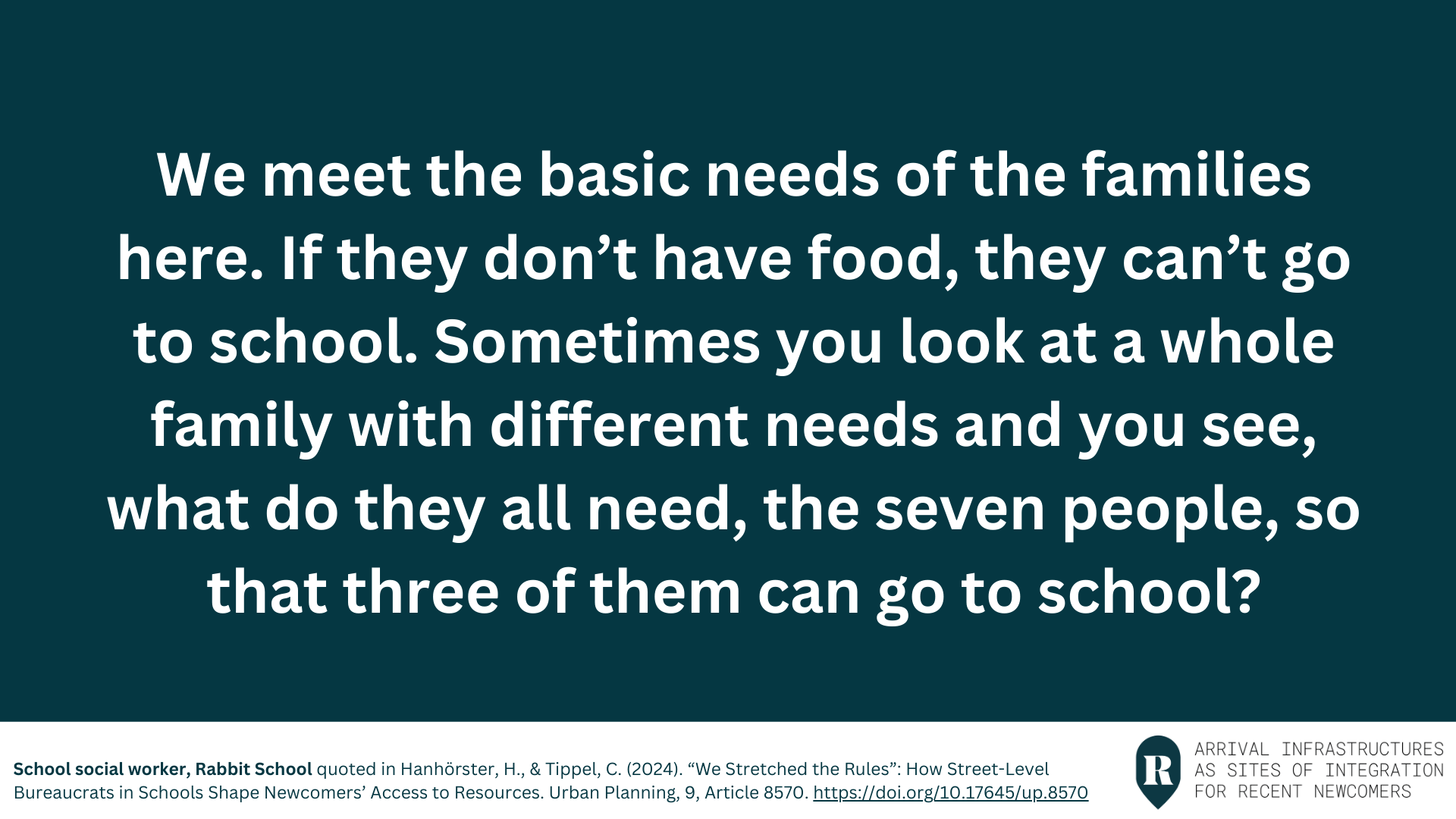
This new article written by Cornelia Tippel (ReROOT site researcher Dortmund-Nordstadt) and Heike Hanhörster (TU Berlin, ReROOT International Advisory Board) explores the role of street-level bureaucrats (SLBs) in primary schools in Nordstadt, Dortmund, Germany, in facilitating newcomers' access to resources. It highlights how school staff, including headteachers, teachers, and social workers, act as policy intermediaries, translating educational policies into practical actions that support migrant families. The study draws on Lipsky's concept of street-level bureaucracy to analyze how these professionals navigate their roles amidst limited resources and diverse demands.
Here are some key takeaways from the article:
Here are some key takeaways from the article:
- Role of Schools: Schools are crucial in the arrival processes of migrant families, serving as both educational institutions and social support networks.
- Street-Level Bureaucrats: SLBs in schools often go beyond their formal duties, engaging in informal practices to meet the needs of newcomers. This includes providing basic necessities, building trust with families, and assisting with bureaucratic paperwork.
- Challenges and Adaptations: SLBs face challenges such as inadequate resources and conflicting demands. They adapt by stretching rules and creating innovative solutions to support newcomers.
- Embeddedness: The effectiveness of SLBs is influenced by their embeddedness in local networks and higher-level policies. Collaboration within the arrival infrastructure is crucial for their success.
- Impact on Policy and Practice: The study underscores the importance of understanding the informal practices of SLBs and their role in shaping migration governance and access to resources.
Hanhörster, H., & Tippel, C. (2024). “We Stretched the Rules”: How Street-Level Bureaucrats in Schools Shape Newcomers’ Access to Resources. Urban Planning, 9, Article 8570. https://doi.org/10.17645/up.8570



